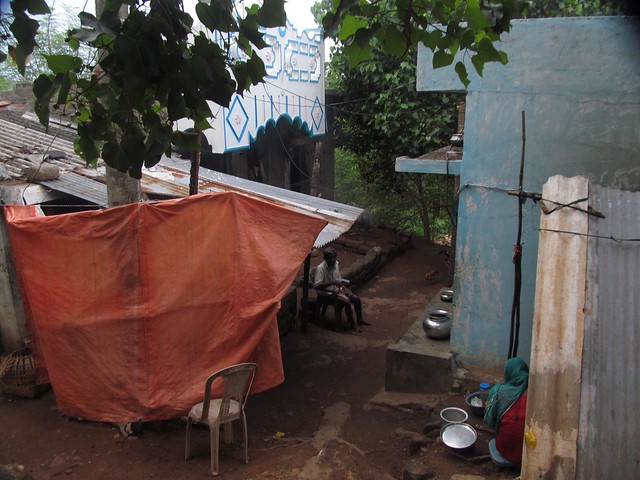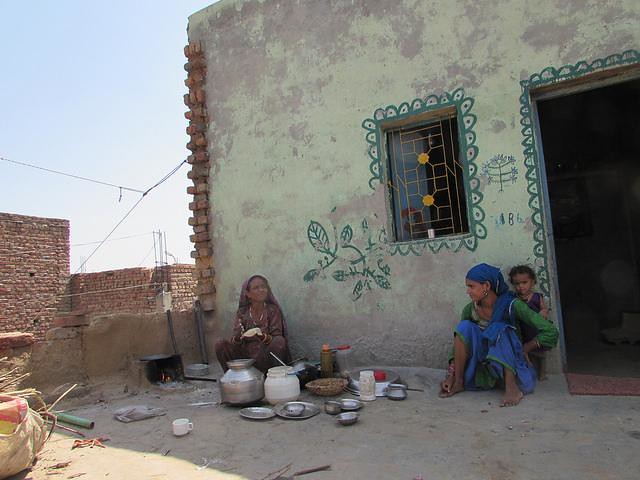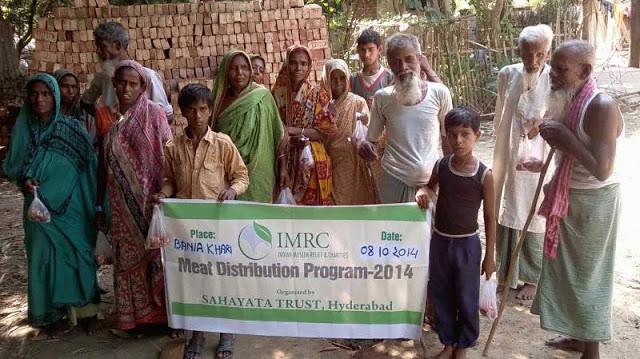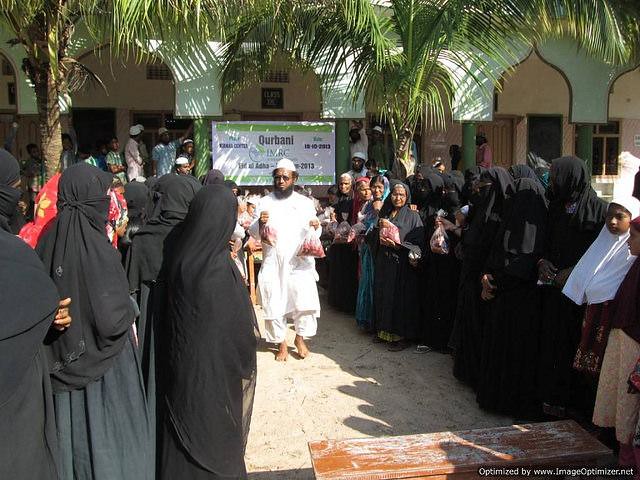By TCN News
Hyderabad/New Delhi: Chilakapalam, a small hamlet on a hillock in the Srikakulam district of Andhra Pradesh, about 600 KM from Hyderabad, has large number of Muslims involved in odd jobs like manual labour, vendors at local markets, or work as repairers of umbrella, keys, etc.

Chilakapalam, a small hamlet on a hillock at Srikakulam district of Andhra Pradesh.
Barely 30 KM from the national capital is a dingy colony in Dhauj, Faridabad called Sadiq Nagar, but more famous by the name of the community of people inhabited, Qalandar or Madari. Most of the inhabitants of this colony earn their living either by spreading across the country and showing plays of monkeys, or some magical tricks (Madari) or many others turned Fakirs and begged for food.
Poor residents from Chilakapalam in Andhra Pradesh to Sadiq Nagar in Haryana rarely have enough money in pockets to buy meat. The poor residents of these villages are looking forward to September 25, when they may have sumptuous meal with meat in abundance on the platter on the occasion of Eid al Adha, thanks to the religious obligation of sharing sacrificial meat with fellow poor Muslims.
On regular days, mutton costs over Rs 400 per KG while even buffalo meat is no less than Rs 150 per KG beyond the reach of poor Indians. On the days of Eid ul Adha they can have this important source of protein for free thanks to the meat distribution program of US based Indian Muslim and Charities (IMRC).

Women working at Sadiq Nagar in Faridabad district of Haryana.
Eid ul Adha will be celebrated across India on September 25. Udhiya or Qurbani of animals, mandated by Shariat, is offered on the occasion in reverence of the traditions of Prophet Ibraheem’s (Abraham). The ritual of sacrificing animals was common in most ancient culture and is practiced even in most religions in different variations.
It is generally recommended to keep one-third for oneself, gift one-third to friends and family and give one-third as charity. However, believers who are rich and offer several animals in Qurbani often send all or the large portion of meat to orphanages or to poor and needy.
However, it is not the size of the animal, the price, etc that matters, but the intent of submission and sacrifices to the will of the God. Allah says in the Qur’aan: ‘It is not their flesh nor their blood that reaches Allah; it is your piety that reaches him’ (22:37).
Muslims from abroad, mainly from the West, often donate money for Qurbani to be offered in their names and its meat distributed among poor and needy in developing countries. There are several Muslim organizations based in USA, UK and other European countries who collect money and get the collective Qurbani done through their sister organizations in different part of the country.

File Photo of Previous Year Meat Distribution Program
Last year, IMRC, with the help of their sister organizations, performed 4580 Qurbani’s, across 19 states reaching out to 5, 21,080 individuals across Andhra Pradesh, Assam, Bihar, Haryana, Jammu & Kashmir, Jharkhand, Karnataka, Kerala, Maharashtra, Madhya Pradesh, Manipur, Orissa, Punjab, Rajasthan, Tamil Nadu, Telangana, Uttar Pradesh, Uttarakhand, and West Bengal.
These organizations also held community Iftar during Ramadan. Hyderabad-based Sahayata Trust is the India partner of the IMRC distributed among different coordinators spread across the country to locate needy people and Qurbani meat distributed among them.
Manzoor Ghori, Executive Director of IMRC, says that they hope to cross 5000, reaching to at least 6, 50,000 people across India.
Waheed Quraishi, Manager of Sahayata Trust and National Coordinator of the Qurbani Programme, further explains that the team of volunteers across the country helps with the slaughter and distribution among the needy. Volunteers in each state is provided with amount in equation to number of animals to be sacrificed in a particular area, decided based on the poverty indicators. “The volunteers procure the cattle, oversee its proper slaughter and then distribute the meat to the people living in extreme poverty,” he says.

File Photo of Previous Year Meat Distribution Program
The Haryana Coordinator of the scheme Mohammad Safi, principal of Iqra Public School, who voluntarily helps in the slaughter of cattle and the distribution of meat, explains that the sacrifice in a particular area depends on the amount of money available and cultural sensitivity of those localities. For example buffaloes are sacrificed in Mewat and Faridabad region, while in Ambala they only offer goats for Qurbani, he says.
According to Syed Aneesuddin, CEO of the Sahayata Trust, most of the beneficiaries of this scheme especially in rural hinterlands, are those people who live under abject poverty with hand to mouth existence or sometimes even worse, for whom buying meat is a luxury, like the Qalandars of Dhauj or the poor residents o Srikakulam. He adds that this year anti-beef laws passed in several states has put restrictions on even slaughtering of bulls and that has increased the cost of qurbani.

